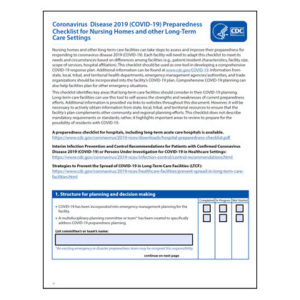Having ‘the talk’ about death
Death may be the ultimate downer, but knowing how to help residents and their families discuss healthcare decision-making is key to supporting person-centered care. The sooner conversations happen, the more the resident can be empowered to participate in the choices—and the sooner those choices can be documented.
National Healthcare Decisions Day, April 16, serves as a reminder of the importance of discussing end-of-life care and resident choices. Advance directives are a crucial part of senior healthcare administration, yet getting residents and their families to converse about the end of life can be very challenging.
Since January 2016, Medicare has been reimbursing primary care physicians for talking with older adults about end-of-life care decision-making. But ironically, some of the people who have the hardest time talking about end-of-life care are physicians, notes a new national poll released jointly by John A. Hartford Foundation, the California Health Care Foundation and the Cambia Health Foundation this week. The poll tapped 736 physicians across all 50 states, finding that while physicians overwhelmingly approved of the idea, almost half admitted they don’t know what to say or how to begin the sensitive discussion. Two-thirds of respondents said they have no training in how to speak with patients and families about end-of life care.
“One of the striking findings from the survey is the difference that training makes in the way physicians feel about the advance care conversations they have with patients. Physicians who report having specific training in end-of-life discussions are more likely than those who have not to find those conversations rewarding,” wrote Terry Fulmer, PhD, RN, FAAN, President of the John A. Hartford Foundation, in a blog Thursday.
Nurses and aides often spend the most time interacting with residents, so they’re often on the front lines of healthcare decision-making conversations, both literally and emotionally, including when a resident says, “I don’t know how to tell my son how I feel.”
The Conversation Project, a national initiative begun in 2012 to raise awareness of the importance of advance directives and the need for end-of-life wishes to be respected, offers a free 23-page online guide for “conversation coaches,” a role that nurses and aides often play.
The site also includes an 18-page booklet that can help administrators and caregivers encourage families and residents to talk about death in a healthy way, including community outreach strategies and guidance on promoting awareness.
“It’s time to transform our culture so we shift from not talking about dying to talking about it. It’s time to share the way we want to live at the end of our lives. And, it’s time to communicate about the kind of care we want and don’t want for ourselves,” notes the Conversation Project mission page. “We believe that the place for this to begin is at the kitchen table—not in the intensive care unit—with the people we love, before it’s too late.”

Pamela Tabar was editor-in-chief of I Advance Senior Care from 2013-2018. She has worked as a writer and editor for healthcare business media since 1998, including as News Editor of Healthcare Informatics. She has a master’s degree in journalism from Kent State University and a master’s degree in English from the University of York, England.
Related Articles
Topics: Clinical , Executive Leadership , Leadership











